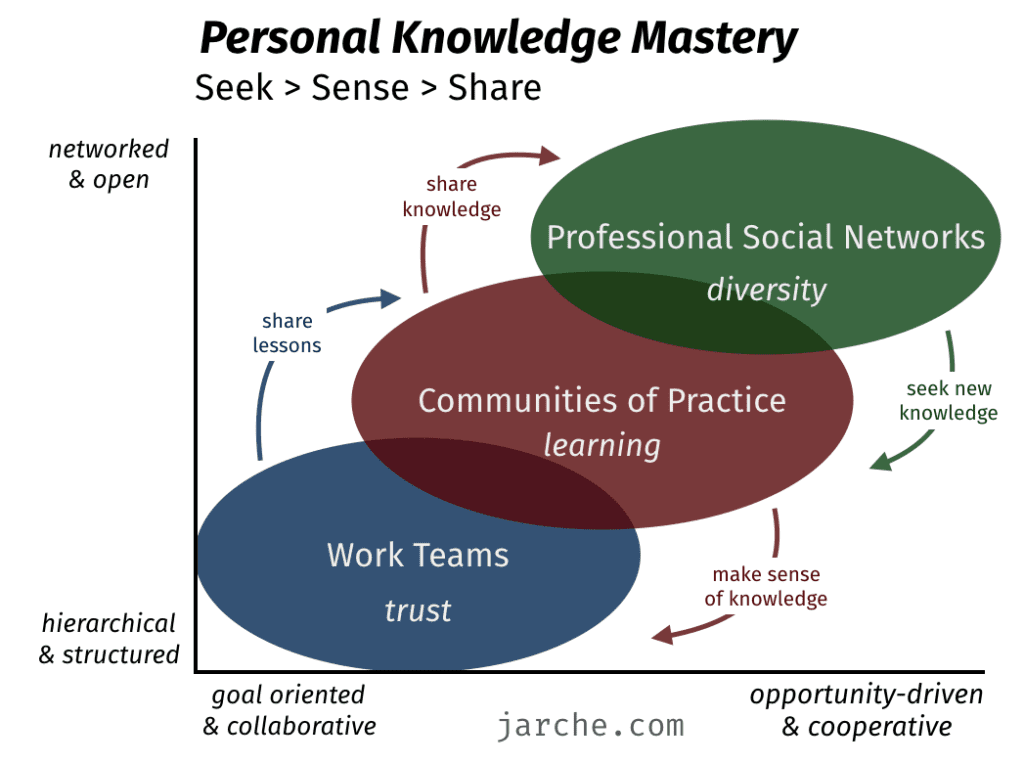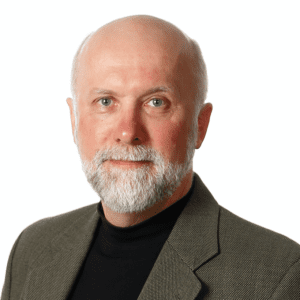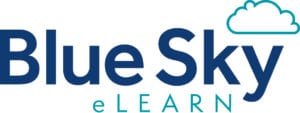As an internationally renowned blogger, Harold Jarche is focused on providing actionable insights for organizations related to learning, work, and innovation. He’s best known for his approach to Personal Knowledge Mastery (PKM), which helps professionals become knowledge catalysts through a continuous process of seeking, sensing-making, and sharing. Because it’s designed to help each of us more effectively manage knowledge networks and the communities we are a part of, it’s definitely a concept that every learning business professional should be familiar with.
In this episode of the Leading Learning podcast, Jeff talks with Harold about the ongoing process of PKM, how individuals can pursue it, and the role learning businesses –particularly membership organizations – might play in supporting it. They also talk about the difference between social networks and communities of practice as well as the important role diversity plays in effective communities.
To tune in, just click below. To make sure you catch all of the future episodes, be sure to subscribe by RSS or on iTunes. And, if you like the podcast, be sure to give it a tweet!
Listen to the Show
Read the Show Notes
[00:18] – A preview of what will be covered in this episode where Jeff interviews international speaker and consultant, Harold Jarche.
[03:03] – Introduction to Harold and how where he lives, his blog (almost 15 years old!), and other tools and technology, impact him, particularly on a global level. He also shares that personal knowledge mastery (PKM) was derived from a personal need.
What is Personal Knowledge Mastery?
[07:59] – For those who aren’t familiar with your work, can you give an overview of PKM and what it actually means?
Harold explains that, generally speaking, it’s a discipline and a framework he created based upon the work of others from personal knowledge management. It’s a way of looking at your learning (informal/social learning, not education/course learning) and how to stay current as a professional, particularly in three areas: the work you’re doing, professional/social networks, and the growing role of communities of practice.
He thinks any professional today who isn’t involved in a community of practice is really missing out on something and that you’ll know you’re in one if it changes your practice. For people who work with associations, Harold emphasizes this is especially critical.

[10:40] – Harold discusses how PKM is essentially a very simple model of seek, sense, and share and explains each component of that including why sharing is so critical to making our networks smarter–which comes back to us indirectly.
He talks about how the critical shift is that you have to give before you get and the ROI often takes a while to see and isn’t obvious.
Sponsor: Blue Sky eLearn
[14:17] – A big part of why we are able to offer the Leading Learning Podcast as a personal knowledge resource to our listeners is the generous support we receive from sponsors like Blue Sky eLearn.
Blue Sky eLearn is the creator of the Path Learning Management System, an award-winning cloud-based learning solution that allows organizations to easily deliver, track, and monetize valuable education and event content online. Blue Sky also provides webinar and webcast services, helping you maximize your content and create deeper engagement with your audience across the world.
[15:09] – Is it faith or just an optimistic perspective on humanity that’s needed to fuel this because you may not get that return for a long time?
Harold explains how it’s more than faith because this is based on deep research in a lot of areas. For example, if you look at how humanity succeeded, it’s actually through cooperation because we are a cooperative species. The shift that we’re making from a market-dominated society to a network-dominated society is that the optimal behavior in networks is cooperative, not competitive like it is in the market. Harold shares an example to illustrate this and the fact that in networks, you have reputational power, whereas in organizations, you have hierarchical power.
So in networks, it’s your reputation that helps you influence people. That shifting in where influence resides makes it important to understand things like networks, professional social networks particularly. And in order to make sense of all of these rapidly changing, complex relationships, Harold says we need to have ongoing conversations about it.
[18:44] – A discussion about how reputational power is portable whereas hierarchical power isn’t.
Harold points out that hierarchy is still necessary though and that he promotes “temporary negotiated hierarchy”. If you can set an organization up so that people can self-form teams this means the leadership role changes for the duration of each project. This makes things smarter because the best person is in charge at the best time for the best period of time.
In contrast, when you have a set hierarchy, that organization is only as smart as the person at the top. Instead of doing reorganization every five years, Harold suggests you need to build reorganization into the organization itself, which is a big mental shift.
[21:18] – I’d love to talk about that shift from two ends of the spectrum—one is the individual who wants to embrace PKM—how do you start engaging with your life and work in the best possible way so that ultimately you are going to get some sort of return off of it?
Harold recommends that you map your network to identify who the people are that you trust and respect (and don’t). Then see where you’re getting your news/views/perspectives from to see if you’re getting a diversity of opinion, particularly on stuff that’s important to you. Harold shares how he does this in his personal life. The other question to ask yourself is that if you lost your job tomorrow, who could help you find another job or other work. So think about your professional network as a social safety net. Jeff also shares his own experience in starting to plot out his network.
Personal Knowledge Mastery vs. Personal Knowledge Management
[26:11] – Harold discusses why his PKM model is personal knowledge mastery rather than management.
He says personal knowledge management is not his term but he took that initial framework and then started mapping out the way he did it—this was for him and he wrote it out on his blog. Then about five years later, there were others talking about personal knowledge management and organizations were interested in his framework. It was in one of his communities of practice where somebody suggested he call it personal knowledge mastery. This name differentiates him but also the mastery part represents an ongoing process.
Harold speaks on PKM at Wits Business School in Johannesburg
Helping Create Communities of Practice
[28:26] – Many of our listeners work for membership organizations or have some sort of a membership model. If you’re in charge of helping to lead learning for that type of organization, how would you think about yourself as a network or potentially as community of practice? What might you do differently in this day and age?
Harold shares that he does a fair amount of work around the changing nature of leadership and that leadership is helping make the network smarter. So as association professionals, you need to think about how to do this. One of the gaps he sees amongst most professionals is that they don’t belong to a community of practice. He says there are already a lot of communities of practice but it’s identifying them and then finding ways to help connect them. If you can enable human relationships, help people build trusted relationships, and get access to the right people at the right time, that’s really valuable—and an opportunity for associations.
Sponsor: Authentic Learning Labs
[31:06] – If your learning business would like greater visibility into how knowledge is flowing across the networks and communities it serves, you need effective tools for analyzing and drawing insights from data – tools like those provided by our sponsor Authentic Learning Labs.
Authentic Learning Labs is an education company seeking to bring complementary tech and services to empower publishers and L&D organizations to help elevate their programs. The company leverages technology like AI, Data Analytics, and advanced embeddable, API-based services to complement existing initiatives, offering capabilities that are typically out of reach for resource-stretched groups or growing programs needing to scale.
[32:04] – A further discussion about the importance of connecting people and community management skills.
Harold points out that if you are an association executive, you should have community managers working for you or you should have those types of skill sets because people are looking for that—they seek human connection and trusted relationships. He explains that social networks like Twitter are good for getting new ideas/diversity but the connections there are very loose and there’s limited trust. On the other hand, communities of practice offer a trusted space to put your ideas out there.
[35:17] – What is one of the most powerful learning experiences you’ve been involved in, as an adult, since finishing your formal education?
Harold reveals that it has to be blogging and talks about how it’s helped him become a professional writer. The daily/weekly writing has really sharpened his mind and he admits that blogging has changed his life (he has over 3,000 posts on his current blog). As far as frequency of writing, he says a good week is usually about 3 posts. Harold adds that bloggers really like when people comment on them so he encourages anyone reading his to do so.
[38:50] – How to connect with Harold and/or learn more:
- Website/Blog: https://jarche.com
- LinkedIn: https://www.linkedin.com/in/jarche/
- Twitter: @hjarche
[39:55] – Wrap-Up
If you are getting value from the Leading Learning podcast, be sure to subscribe by RSS or on iTunes and we would be truly grateful, as it helps us get some data on the impact of what we’re doing.
We’d also appreciate if you give us a rating on iTunes by going to https://www.leadinglearning.com/itunes. We personally appreciate your rating and review, but more importantly reviews and ratings play an important role in helping the podcast show up when people search for content on learning and leading.
And please do be sure to visit our sponsors for this quarter. Find out more about Authentic Learning Labs and Blue Sky eLearn.
Finally, consider telling others about the podcast. You can send a tweet by going to leadinglearning.com/share. You can also Like us on Facebook at facebook.com/leadinglifelonglearning and share us with others there. However you do it, please do help to share the good word about the podcast.
[42:00] – Sign off
See Also:




 Predictive Business Analytics with Gary Cokins
Predictive Business Analytics with Gary Cokins
Leave a Reply